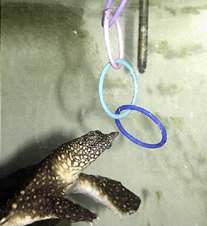Imposter syndrome seems to be a buzzword this year. Everyone at Cambridge is warning our new students against doubting their skills, talents or accomplishments. As Wikipedia puts it, imposter syndrome is having a persistent internalised fear of being exposed as a “fraud”. I wonder if it’s more a case of just not feeling you deserve to be where you are.
At our matriculation dinner this year, one of our new veterinary medicine students looked around them at our amazing 16th-century hall and confided in me that if anything was going to give you imposter syndrome, this was it! So I told all our four new freshers the next day that really, truth be told, none of us “deserved” to be here – it was a wonderful gift quite as much as, if not more than, a reward for what we have done. If the students look on college life and their course in that way, my feeling is that it should put far less pressure and stress on them than if they feel it’s something they’ve earned and they have to keep working their guts out to keep up that level of achievement.
That dinner signalled 25 years since I started as director of studies at St John’s College, Cambridge. Maybe some of you reading this will have been my students over that quarter of a century. If so, do get in touch – I’d love to have another big dinner in hall to celebrate that, come the summer! But, as ever, I’ve gone off on a bit of a tangent. Let’s get back to imposter syndrome.
Though imposter syndrome seems relatively new as a feature of freshers’ week, it was actually introduced into the literature back in 1978 in a paper which talked about the imposter phenomenon in high-achieving women (Clance and Imes, 1978). By 1985, Clance had devised the “Clance Imposter Phenomenon Scale” demonstrating that although men and women can be affected it was women who seemed more likely to suffer from this (Clance, 1985; Chrisman et al., 1995).
So maybe in our increasingly female-dominated profession we might see this more and more. Well, I use the term “dominated” but that really is entirely the wrong phrase – far too aggressive a term. What I mean to note is that we have such a substantial gender bias in the profession, but even bias sounds too negative a term. “Women are well represented” (Begeny et al., 2020) – that sounds better, doesn’t it?
In the year I qualified, 1988, half of our year were male and half female. Now we have just a smattering of blokes. Of the 35 aspiring vets I interviewed for this year’s intake, only three were male. And we gave a place to one of those. So, it’s not at all that we are rejecting men who are applying. Teenage lads just don’t seem to want to be vets. Why on earth is that?
The problem is that it is very difficult to assess the reason why anybody would not want to apply to study the veterinary medicine course. It’s obviously easy to ask current students why they are taking the degree but accessing students who haven’t applied is next to impossible.
I did find one paper that overtly addressed the problem back in 2006 – it’s worth reading as it looks at the issues of having children and working, taking time out on a career path, female aspirations to practice ownership and a fair bit more (Smith, 2006). But it is all about women working in the profession, not young people thinking of entering it. Maybe we need to ask school kids why they might choose veterinary medicine or why not?
I can offer you a sample of three – when asked why they hadn’t chosen veterinary medicine, my three boys said in unison that I worked far too hard and that while I seemed to enjoy vetting a lot, they were sure they could find enjoyable employment that wasn’t such hard work. Enough said perhaps?










